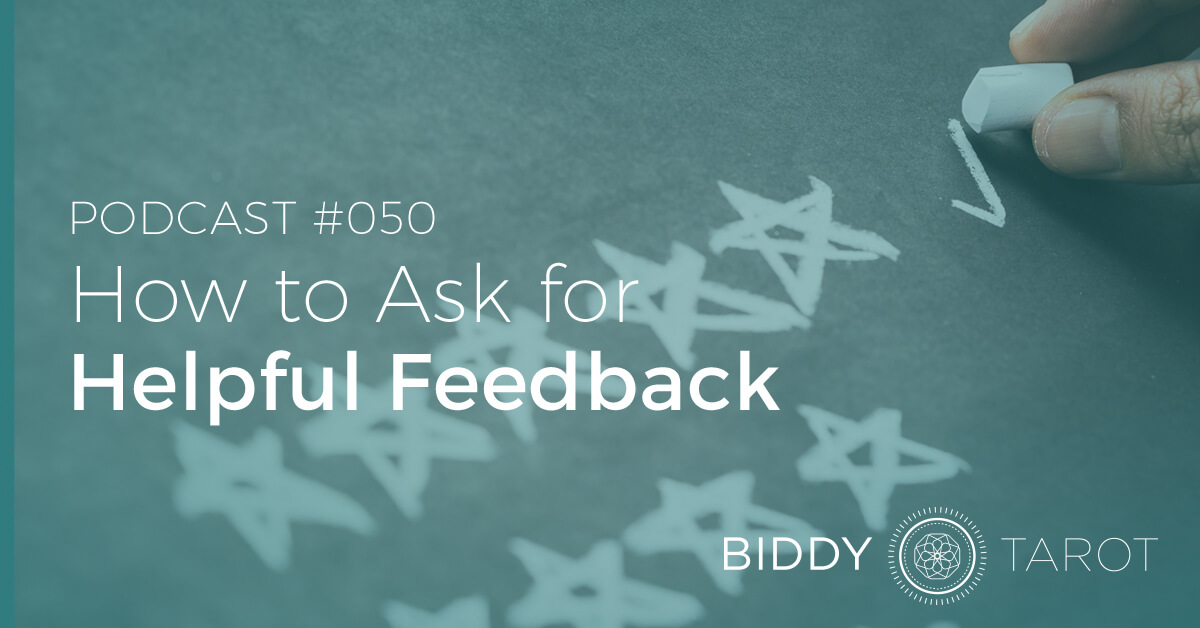
If you want to become a confident and sought-after Tarot reader, then one thing is sure – you need happy clients.
It doesn't matter whether you're reading for friends and family or paying clients – you want to know if your Tarot clients are getting the results they want and need from your readings. The way to do that is to ask for feedback.
Today, I’m going to show you how to ask for helpful feedback to improve your Tarot reading skills, dazzle your clients, and create powerful testimonials. In this episode, you’ll learn:
- Why feedback is important
- How to get clear on the types of questions to ask
- How and when to ask for feedback
- The four main time periods for asking for feedback
- How to do a feedback survey
- Sample questions
Additional Resources:
Podcast Transcript
Brigit: You’re listening to the Biddy Tarot Podcast, and this is Episode 50: How to Ask for Helpful Feedback.
Voice-Over
Welcome to the Biddy Tarot podcast, where you will learn how to connect more deeply with your intuition and live an empowered and enlightened life with the Tarot cards as your guide.
Listen as Brigit and her guests share their very best tips and strategies to help you read Tarot with confidence.
And now, here is your host Brigit Esselmont.
ASKING FOR FEEDBACK
Brigit: Hello and welcome back to the Biddy Tarot Podcast. As always, it's such a pleasure to be talking Tarot with you today.
If you want to become a confident and sought-after Tarot reader, then one thing is sure – you need happy clients.
It doesn't matter whether you're reading for friends and family or paying clients — you want to know if your Tarot reading clients are getting the results they want and need from your readings. And the way to do that is to ask for feedback.
It may be as simple as asking, “How did I do?” But if you want to really hone your Tarot reading skills and grow your client base, then you also need to hone how and when you ask for feedback.
In today's podcast, I'll show you how to ask for helpful feedback to improve your Tarot reading skills, dazzle your clients, and create powerful testimonials.
CELEBRATING YOUR REVIEWS
Brigit: Before I get into it, I want to say a huge thank-you to everyone who has sent a review and shared their feedback and comments about this podcast. I want to celebrate two such reviews that have been given very recently.
Superj155 from the U.S. writes, “Inspiring and helpful. These podcasts are short, fun lessons that make tarot reading less like trying to solve a math problem and more like reading a graphic novel. Fantastic!“
Thank you so much. That's awesome. I really appreciate it.
This second review is from deliriumsfrogs, also from the U.S. They say, “Little Lessons that Go a Long Way. I'm a newbie to Tarot, only recently plunging into the oftentimes overwhelming world of these 78 cards. Along with all my favourite Tarot books, Brigit's podcast has become an indispensable resource for my Tarot study. I print out her PDF files and add them to my Tarot binder, and I even had her in my ears walking me through the Celtic Cross the first time I did it. I felt very lucky to be living in this time of such technological advancement, in that I can have Brigit as a Tarot tutor. How great is that?! I highly recommend this podcast and can't thank Brigit enough for all she's given me towards this hobby that has come to mean so much personally.”
Oh, absolutely gorgeous. Thank you so much to deliriumsfrogs for leaving such a beautiful review. Again, it's my honour and pleasure to be in your ear buds, talking you through Tarot, and helping you learn this beautiful, beautiful tool that we have at our disposal.
Thank you so much for those reviews. Remember you can leave a review over on iTunes and you can also leave a star rating. Five stars is always very, very nice.
Alright, let's get into the juicy content for today's podcast.
WHY FEEDBACK IS IMPORTANT
Brigit: Why is feedback important? Well, hopefully you already know, but let's just do a quick check in.
Feedback is really important because it helps to validate your intuition. You know how you have those sort of little intuitive hits in the reading? Sometimes you're thinking, “Oh, I don't know if it's right. Do I say it or I don't say it?” Just asking for feedback will give you some information about whether your intuition is on track or not.
Then you can also say, “Okay, I kind of felt like this when I had a good intuitive hit, but I felt like this other way when I didn't have a good intuitive hit.” So you're getting that feedback and you're getting a better sense of when to pay attention to your intuition.
Feedback is also important because it helps you improve as a Tarot reader. Any kind of feedback will give you an idea about what are you doing really well and when might you improve as well. Definitely think about feedback in terms of how it's helping you improve as a Tarot reader.
Feedback is important because it shows a level of care for the person you're reading for.
At hotels, the first thing staff asks at checkout is “How was your stay? Did you enjoy your stay here?” I think, “Yeah, I did.” That gives me an opportunity to share feedback at that point.
But other hotels where, maybe I have not had such a great experience, sometimes don't even ask about my stay. I feel that they just check me out, charge my credit card and that's it. It doesn't feel like there's a great amount of care for me as one of their guests.
So think about it when you're doing a Tarot reading. If the Tarot reader asks you what you thought of the reading, the client will feel like you really do care and they’ll know that you want to make sure they got the experience they looked for.
Finally, getting feedback can be really wonderful for creating testimonials. Particularly if you are focused on growing a Tarot business, having those testimonials will be super helpful to attract new clients.
GET CLEAR ON YOUR GOALS
Before you ask for feedback, it's important that you're clear on your goals. What do I mean by this? On one hand, you want to know what experience you want to create as a Tarot reader to focus your feedback questions properly. It's also going to be a really helpful filter for the feedback you receive because, to be honest, not all feedback is helpful and not all feedback needs to be acted on.
For example, I want to create more of a coaching experience for my Tarot readings. I want the client to walk away from a reading with some clear actions that they can do in order to manifest the outcome that they most desire.
Now, if I get feedback that says, “Oh, you didn't tell me my future,” being clear about what I want the experience to be like allows me to to say “Ok, I think we're misaligned here anyway.” I didn't want to create that experience, so I'm not going to take that feedback on. Or maybe I will and revisit my marketing copy to make sure that it's clear to clients that I don’t provide fortune-telling sessions; I provide coaching session with Tarot cards.
That's one example. But also, if you're focused on creating a coaching style of reading, then the question that you ask as part of the feedback will be more focused on coaching. That is, “did you feel that you were effectively heard? Did you feel that I listened to you? Did you feel that you walked away with a clear set of actions? Do you feel like you can control your future?”
Being clear on your goals allows you to shape specific questions that you can ask your clients and to get more direct feedback.
The second thing that you want to be clear about before asking for feedback is what you want do with that feedback. For example, is feedback simply for personal improvement? Is it because you want to understand your strengths or your weaknesses? Think about that because the questions will be quite different.
I personally like to work with strengths rather than weaknesses. Sometimes it's nice to know what haven't you done well or what can you improve on. but sometimes that can be a bit of a downer. So check in with what feels right for you. I like to focus on the things that I want to create versus the things that I don't want to create. Just check in on what feels good for you.
You might also want to create testimonials with your feedback. I'm going to share with you some ideas for asking testimonial-style questions for feedback.
Finally, you might want to be using this feedback more for customer care, in which case, it's very focused on them and whether they've enjoyed the experience.
HOW AND WHEN TO ASK FOR FEEDBACK
We know now why feedback is important and we also know that there are a few things you need to be clear about before you start asking for feedback.
Now I want to walk you through how and when to ask for feedback because there are quite a few different points in time where it makes sense to ask. Now of course, you might not want to ask for feedback during all of these different points in time. You might find it a bit too much, or you might actually find a really nice natural organic way of asking at these different times.
A great time to ask feedback is during the reading. This is particularly useful for face-to-face readings, but you can still also do it in one-directional readings like an email reading or an audio/video reading.
Quite simply during the reading, you might ask, “How is this resonating for you? How does this sit for you? Is this connecting with you?” This is a really good way of just checking that your client is on board with the reading, checking that they're not feeling confused, that they have clarity, that they understand what you're saying, and that you're also helping them with the situation at hand.
And if you're doing an email reading, you can just type it in. “How is this resonating with you?” Of course, then you move on to the next paragraph. You're not going to send that off via email and wait for the email response and then continue with the reading. But even just having those little questions in an email reading can be incredibly helpful. And, again, it's just giving that sense to the client that they're being heard and they're important in this process.
The second time when you can ask for feedback is directly after the reading. You lay out the cards, do your reading, sweep up the cards ask for feedback before the client leaves.
Generally, I find it's better to keep it quite general at this point, particularly if you're in a face-to-face situation. The client will still be processing a lot of the information and I think it takes at least a few days for a reading to fully settle in and integrate and for that client, and to see how it fits in with their current circumstances.
Join Now - FREE Workshop
Add A Bit of Practical Magic to Your Tarot Readings
Join Brigit Esselmont in this groundbreaking workshop and discover the surprising secrets that will help you unlock your true potential and craft impactful, transformational readings — NOW
Join Now - FREE Workshop
Add A Bit of Practical Magic to Your Tarot Readings
Join Brigit Esselmont in this groundbreaking workshop and discover the surprising secrets that will help you unlock your true potential and craft impactful, transformational readings — NOW
More specific questions are great a little while after the reading, but directly after the reading, you might just ask quite simply, “Was this reading helpful to you?” Or if you're more of a coaching style of reader, “Are you clear on what steps you need to take to resolve this situation?”
This is a check-in point to determine if the client is satisfied with the reading and if there is anything you can clarify.
Of course, it's also a good opportunity to say, “This is just the beginning of the changes that may occur for you. Expect that over the next few days, this reading will settle in for you, and you may start to find that new insights begin to emerge.”
Of course, you can tell them at this point that you’ll check in about a week to get more specific feedback from the reading. Ask, “Are you okay if I contact you?”
The third time period where you can ask for feedback is about five to seven days after the reading.
This is the point at which your readings have had the chance to settle in. It's particularly important if there were difficult messages in the Tarot reading or if you noticed there was a little bit of resistance. Maybe the client was only listening for what they want to hear. So giving them some time to process will help them come into a more constructive space. Even if there are some emotional responses, usually those pass after a few days.
FEEDBACK SURVEYS
This is when it's a good time to send a more specific or more detailed feedback survey to your client. Here are a couple of ideas of what you could include in that feedback survey.
If you're focused on personal improvement and perhaps understanding what your strengths are, then you might ask what aspects of the reading were most helpful or what aspects of the reading provided the most insight.
Perhaps you want to improve your intuitive abilities, in which case you might ask, “To what extent did you feel that this reading was an intuitive reading?” Or you might even be really specific and say, “How would you rate my intuitive abilities?” This makes it a little bit more about you as the reader if you want to get feedback for your personal improvement.
If you want to get an idea of some of your weaknesses, then you might ask, “How can I improve as a Tarot reader?”
You can also ask,
- “Was the reading provided in a good amount of time?”
- “Did you feel that I listened to you?”
- “Did you feel that I understood your question?”
- “Did you feel that the answer provided gave you the insight that you needed?”
Just notice the words that I'm using here are very much “I” words. When we're using “I”, that makes these questions about you as the Tarot reader. That helps with the personal improvement side of things.
Now if you want to do more of a customer care style of feedback survey, you'll be using more language around “you”. For example, “Were you satisfied with the reading?”
Actually, let me just pause on that question. Because sometimes that can pat you on the bum a little bit, because someone might say, “No, I hated the reading because it told me something I didn't want to have happen or I didn't want to know.” It doesn't mean that they're saying that your reading, itself, was really bad. It's them saying, “I didn't like the message of the reading.” Sometimes you can get kind of a confused message when you ask this type of question.
Another question you might want to include is based on something called a ‘net promoter score’. The question is, “How likely is it that you would recommend me to a friend?” You ask them to score between one, which is not likely at all, and ten, which is very likely.
If you're scoring eight to ten, then you're doing really, really well. If you're scoring six or a seven, this person is a little bit on the fence. If you're scoring a five or below, then you've got some issues that you need to address with that particular client because they're not willing to recommend you. That's a problem.
If you're asking questions for a testimonial, here are four questions that are really, really powerful.
- “How did you feel about the situation before your reading with me?”
- “How do you feel about the situation now?”
- “What has changed for you as a result of the reading?”
- “What have you been able to create or achieve as a result of the reading?”
These questions are great because they start to form is a basic ‘before and after’ story; a success story about the client.
For example, the client might have had a problem with a relationship and they’d write, “Before the Tarot reading, I felt so unclear about the relationship, I blamed it all on my partner and I just couldn't see a way forward. But after the Tarot reading, I now feel like I have a way of communicating with him and we can clear the air and get things back on track.”
For the question, “What has changed for you?” the answer could be “Well, my mindset has really changed.”
For “What have you been able to create or achieve?” the answer could be “We had a great conversation last night. We put our concerns on the table and we're actively working together to make some positive change in the relationship.”
Imagine telling that story as your testimonial, as a case study to prospective clients. It's a really, really powerful way of getting a great story with your clients.
Now, of course, if you do want to use a testimonial like that, you need to make sure you ask for permission to publish the testimonial and be very clear about whether you're publishing first name or full name. Also, be clear whether you're including a photo or not and make sure that the client has fully agreed to sharing that information.
If you edit the testimonial at all, make sure you show the client the fully edited version to get their consent.
If you do a feedback survey for your clients, I recommend sending a personal thank you note to the people who respond.
If you're getting not so great feedback, then you definitely need to respond and address that feedback. If some of that feedback is not helpful, then you can just simply thank the client for their feedback.
If you get really positive feedback, again, make sure you acknowledge that feedback and say thank you for it. Reinforce the experience for them as well.
The final period in which you can ask for feedback is usually about one to three months after the reading. This is great for customer care because it shows that you're thinking about your clients and it shows that you care about what's going on for them.
A couple of questions that you can ask are quite simply, “How are things going since our reading together?” Or you can be a little bit more specific. So from that example before, “How is it going with communicating with your partner? Are you moving things forward?”
You might also want to ask what has changed or what new information has emerged from the Tarot reading. Remember that things evolve and what you might see in a Tarot reading today might take on a whole different.
FOUR FEEDBACK PERIODS
A quick recap: There are four main time periods for asking for feedback.
- During the reading. This is just a basic “How is it resonating for you?”
- Directly after the reading. This is a general question, “Was this helpful for you?”
- About a week after the reading – send a feedback survey with some specific questions focused on your feedback goals and what kind of experience you want to create for your clients.
- One to three months after the reading. Check in on how things are going.
That final check in, if you're reading Tarot professionally, it's a great way of staying in touch with your clients and potentially getting return customers. They might think, “Oh, you know what, we are communicating, but now we want to find out how to make the most of our relationship together,” or, “Now we're planning on moving house together and we want some insight about what to do next.”
There you have it. That's how you can ask for helpful feedback, whether it's for personal improvement, customer care or getting more clients and awesome testimonials.
GROW YOUR TAROT BUSINESS
If you're trying to grow your Tarot business online, I highly recommend our business program specifically designed for Tarot readers just like you.
In six comprehensive modules, you'll learn everything there is to know about setting up a successful and thriving business. Not only a financially successful business, but also spiritually rewarding business as well.
The course teaches things like:
- Working out your ideal client
- How you find that ideal client
- Setting up a website/blog/newsletter/social media
- How to price your offerings
- How you can start to create some products
- Hiring a team
- And more!
You can find out more information about the Grow Your Tarot Business Online program at Biddytarot.com.
We've got full transcription for today's podcast and all of our show notes at BiddyTarot.com/50, that's 5 – 0. And you'll get all the show notes and you can sign up to get the transcription for today.
Awesome. Well, I hope today has been really helpful for you! Remember, it doesn't really matter if you've got paying clients or you're simply reading for friends and family. Getting helpful feedback is super important. Not just for you as a Tarot reader, but also for the people that you read for.
Enjoy those Tarot readings and I look forward to connecting with you again very, very soon.
Thank you and bye for now.

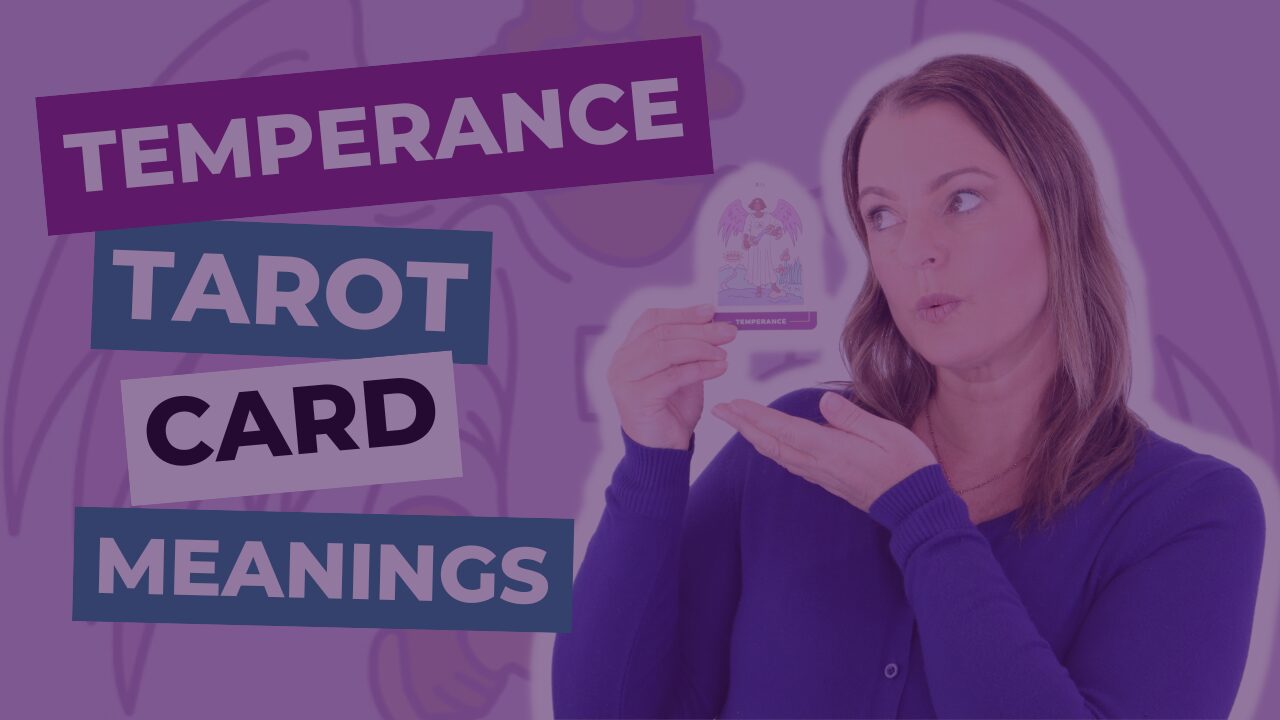
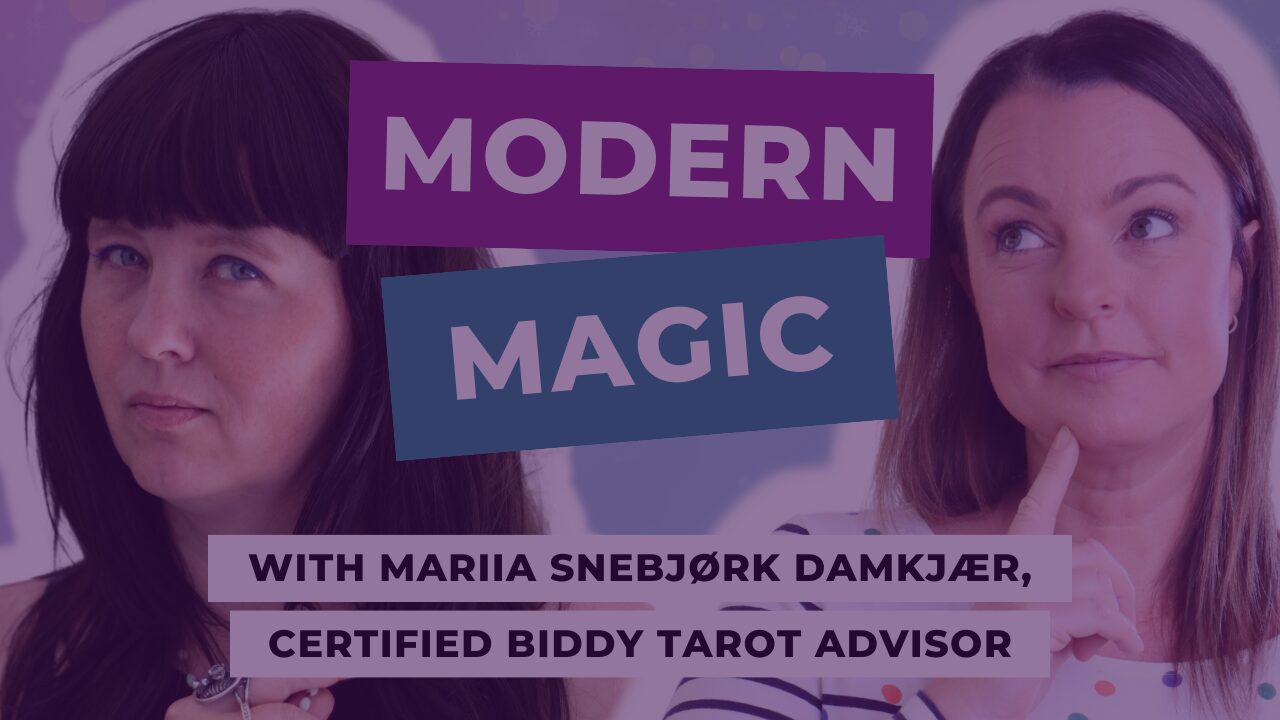
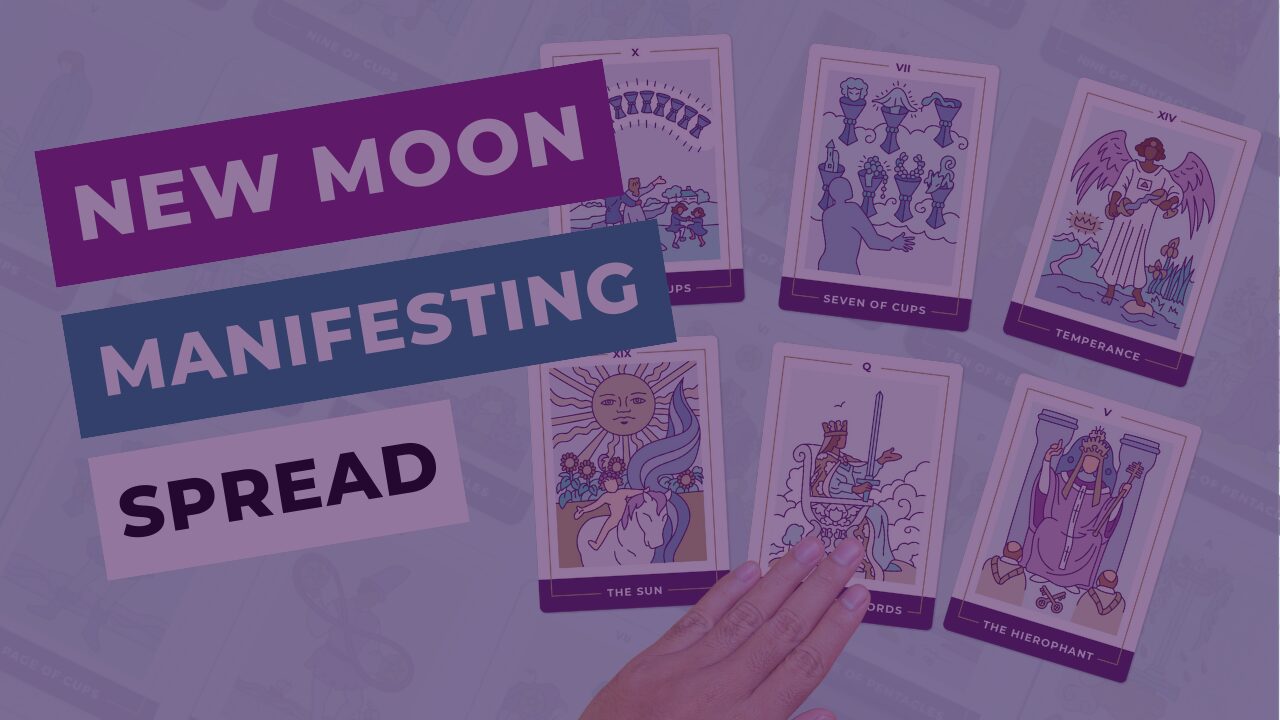
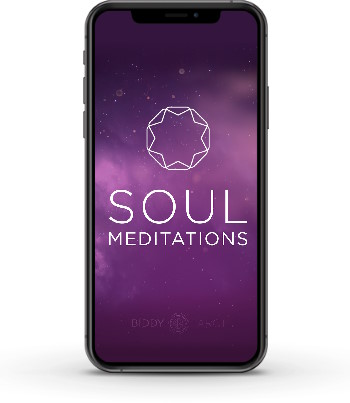 Harness the wisdom of the Major Arcana with 22 guided meditations. Here’s what you’ll get:
Harness the wisdom of the Major Arcana with 22 guided meditations. Here’s what you’ll get: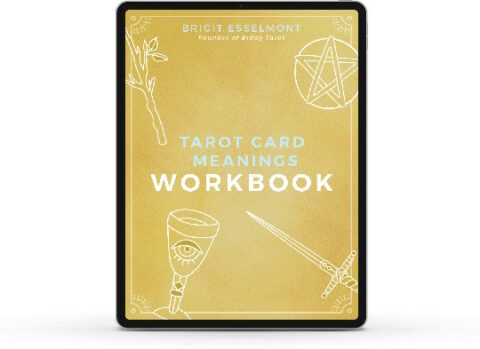 Create a deeply intuitive and personal connection to the Tarot cards with your very own Tarot Card Meanings Workbook. Here’s what you’ll find inside the workbook:
Create a deeply intuitive and personal connection to the Tarot cards with your very own Tarot Card Meanings Workbook. Here’s what you’ll find inside the workbook: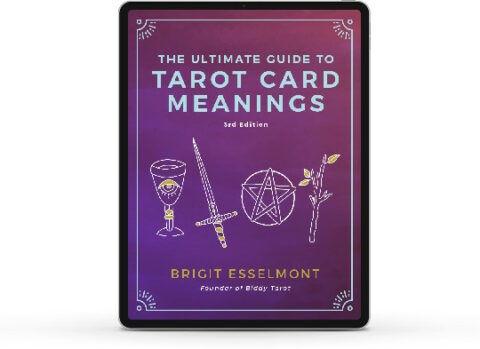 Here’s what you’ll find inside for every card in the deck:
Here’s what you’ll find inside for every card in the deck: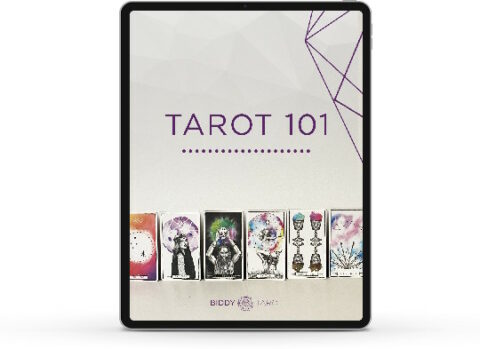 Start doing deep, accurate readings TODAY with this step-by-step accelerated program for beginners.
Start doing deep, accurate readings TODAY with this step-by-step accelerated program for beginners.